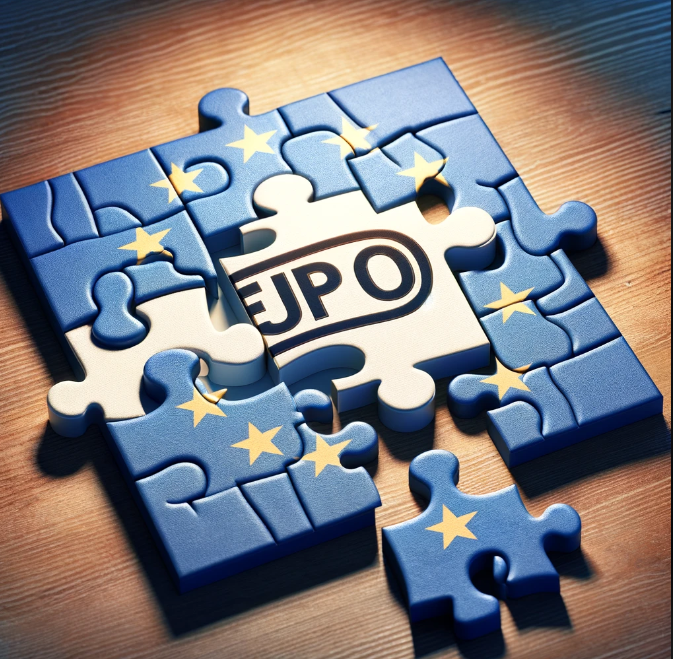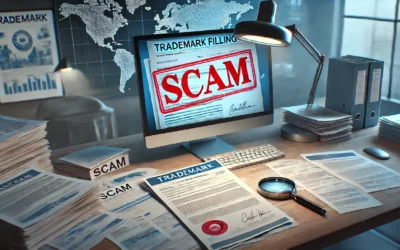The European Union Intellectual Property Office (EUIPO) has recently registered trademark EUIPO. The details of the registration can be found here.
Trademarks are commercial signs that distiguish the products and services of one company from those of another companies. In other words, they identify the commercial sources of a product or service.
EUIPO, in contrast, is not a commercial operator but a public agency of the European Union. Its mandate is specified in various EU regulations and mainly deal with the administration and promotion of the EU trademark system. It’s mandate does not include participation in the commercial markets.
The registration raises several uncomfortable questions.
Distinctiveness of the EUIPO trademark
The EUIPO trademark has been registered, meaning that its distinctiveness has been affirmed. The obvious problem is that the distinctiveness of the mark has been examined and approved by the applicant (EUIPO) itself.
On the other hand, who else would there to be to examine the application? In the present case, the distinctiveness is not just an academic question.
It is commonly known that EUIPO is an acronym for “European Union Intellectual Property Office”.
According to EUIPO’s own examination guidelines “abbreviations of descriptive terms are in themselves descriptive if they are used in that way, and the relevant public, whether general or specialised, recognises them as being identical to the full descriptive meaning“.
In other words, the distinctiveness of the EUIPO trademark depends on the distinctiveness of name “European Union Intellectual Property Office”.
The name simply informs the user of the services that the applicant is an office that handles European Union intellectual property matters. The name is arguably directly descriptive for many, if not all, goods and services covered by the registration.
The EUIPO routinely refuses to register trademarks with much less distinctiveness.
What about prior rights?
The EUIPO does not examine prior rights when it registers new trademarks. Rather, it is for the owners of prior trademarks to oppose those applications that they consider infringing on their rights.
The European Union Intellectual Property Office was established on 6 July 2017 when the EU trademark regulation entered into force. Their trademark application EUIPO was filed on 21 February 2023.
Even a very simple review of prior trademarks show that there were many similar prior trademarks registered in the EU and its member states that could have been used to oppose the EUIPO’s application. Many of these trademarks where registered before EUIPO even existed. Fortunately for EUIPO, no oppositions were filed.
If somebody had opposed, the EUIPO would’ve had to decide on an opposition where it was a party to the proceedings itself. From the opponent’s point of view, this would’ve been a completely unacceptable position raising fundamental issues about fairness and the neutrality of the agency.
To the extent that the EUIPO is performing its public/governmental functions as prescribed by law, no trademark owner can oppose that, including the use of the name EUIPO.
However, by registering a trademark, EUIPO is stepping away from its governmental function, and entering into the field of commercial activities. To the extent that EUIPO is actually using its trademarks, i.e. not merely performing it’s prescribed governmental function but offering goods and services on the market, it has to take into account that those actions might infringe other companies’ intellectual property rights. As such, it could be liable for trademark infringement.
Bad faith?
It is not likely that the EUIPO has had any particular dishonest intentions with its trademark application. However, the EU courts have held that if the applicant files a trademark application for “obtaining… an exclusive right for purposes other than those falling within the functions of a trade mark“, it may be considered bad faith. The functions of a trademark referred to above, are first and foremost distinguishing commercial goods and services on the market.
According to case law, if the applicant has no intention of participating in the commercial market (use the mark to fullfil its essential function), it is possible that such a trademark application is consider to have been filed in bad faith.
How would EUIPO deal with a bad faith cancellation against its own trademark?
Cancellation for non-use?
The EUIPO’s registration is still relatively new, so it is not yet under use obligation. When the registration is five years old, it could be challenged by a third party to the extent that it has not been in genuine use.
In order to satisfy the use requirement, the use of the trademark means that it has been used in commerce. Merely fulfilling statutory function of administering the EU trademark system is not commercial use of the name and such use cannot satisfy the genuine use requirement.
There must be real commercial use to maintain or create a market share for goods and services protected by the mark. To the extent that the EUIPO is using the name in fulfilling its public (governmental) role, it should not and could not probably satisfy the use requirement. This, by itself, does not mean that EUIPO could not be using the trademark as required by law.
Could the EUIPO trademark be cancelled or the EUIPO sued for trademark infringement?
The EUIPO, as an agency of the European Union, enjoys legal immunity. This includes also its property, presumably including its intellectual property.
According to EU Protocol on the Privileges and Immunities of the European Union, “The property and assets of the Union shall not be the subject of any administrative or legal measure of constraint without the authorisation of the Court of Justice.”
This means that the EUIPO could probably not be sued in the courts of EU member states and its trademarks could not be declared invalid by a court without the authorisation of the EU’s Court of Justice.
It is easy to understand that EU’s and EUIPO’s assets are vital for them to be able to perform their functions. If their offices, records, computers, etc. were confiscated, they could not function properly.
However, it is not easy to see how the declaration of invalidity of its trademark would in any way prevent the EUIPO from exercising its duties and carry out its mission of administering the EU trademark system. After all, it has done that extremely successfully without any trademark registrations of its own.
So why does the EUIPO need a trademark?
The most likely explanation behind the trademark registration is that it will make it easier to prevent others from trying to exploit EUIPO’s name for commercial purposes. Trademark registrations make it easier to bring proceedings if somebody uses a similar name for, for example, offering trademark renewal services.
It is certainly easy to see how it would be detrimental for the users of the EU trademark system if EUIPO’s name was used for illegitimate or illegal purposes. Also, a trademark registration crucially makes it possible for EUIPO to take down domain names that exploit the acronym EUIPO (for example, euipo.online or euipo-online.eu) to mislead the public.
No doubt the objective behind the trademark registration is to be able to weed out abuse and misuse of the name EUIPO and therefore benefit the users of the EU trademark system.
On the other hand, trademark registration should not be necessary to achieve that goal. For example, in 2017 the EUIPO took action against a UK company “EUIPO International Ltd”, and the company was ordered to change its name.
Further, national trademark offices in the EU have refused to register trademark EUIPO because it is a symbol protected by the World Intellectual Property Organisation (WIPO).
Speaking of which, WIPO maintains a list of internationally protected names. Member states of an international treaty called the “Paris Convention” can inform WIPO that they want special protection for their names and symbols so that these names cannot be registered or used as trademarks by private companies. This also applies to names, abbreviations and acronyms of international organisations.
The EU has applied, and WIPO has accepted that “The European Union Intellectual Property Office”, its acronym “EUIPO”, and its logo, are internationally protected names that cannot be registered and used as trademarks without EU’s consent.
Conclusion
By entering into the trademark arena as a participant, the EUIPO has muddied waters. There are several difficult questions and interests of conflict that could arise in the future.
It is not at all clear how trademark conflicts between the EUIPO and private companies would be handled. How could a company get proper recourse to justice if EUIPO infringed its trademark rights? Could EUIPO’s trademark be cancelled for bad faith or non-use? Who would cancel it?
For all users of the trademark system in European (be it the EU system or that of member states), it would be better if the EUIPO was not a participant in the system, but stick to its role as a referee.
Read more
Can you trademark an acronym?



